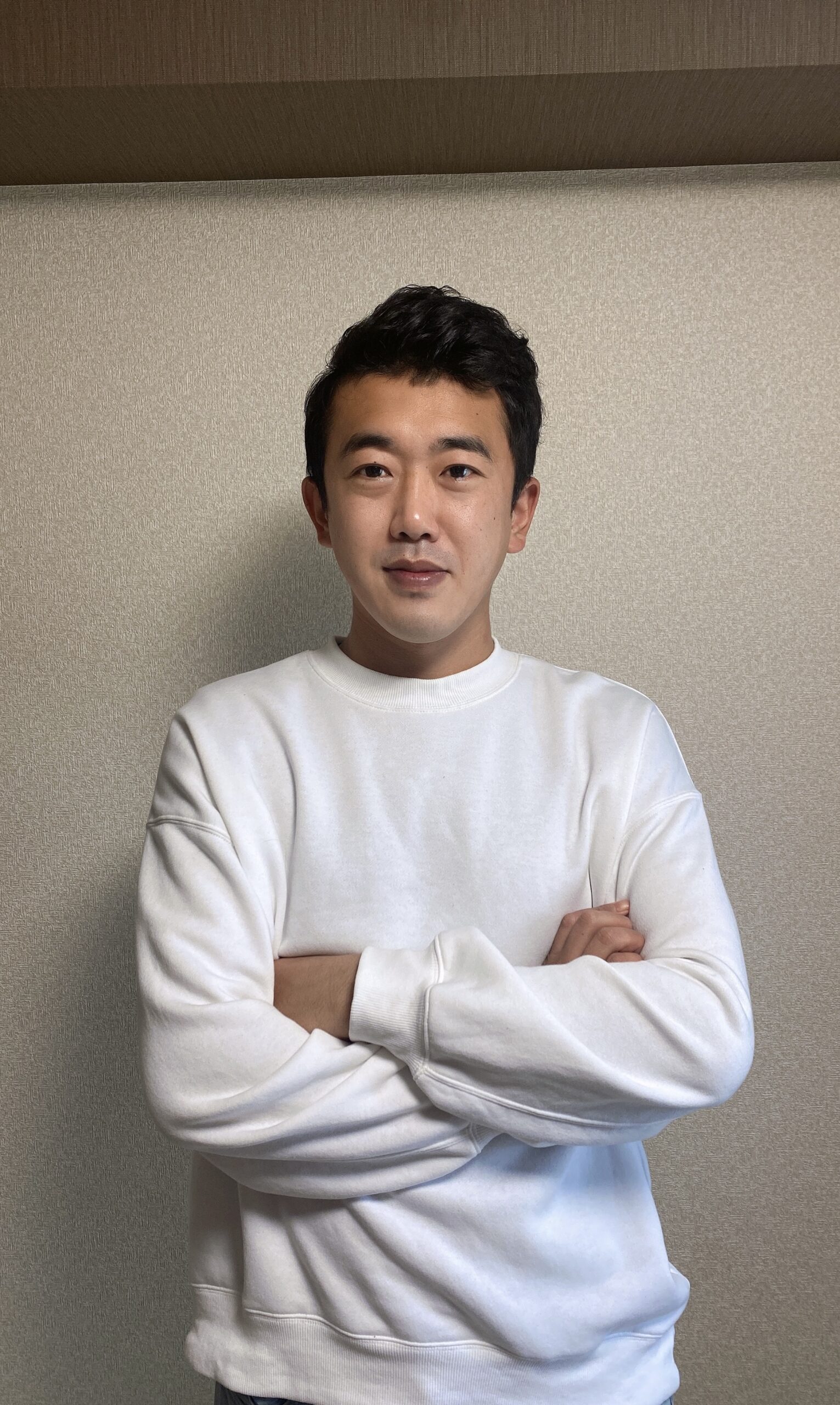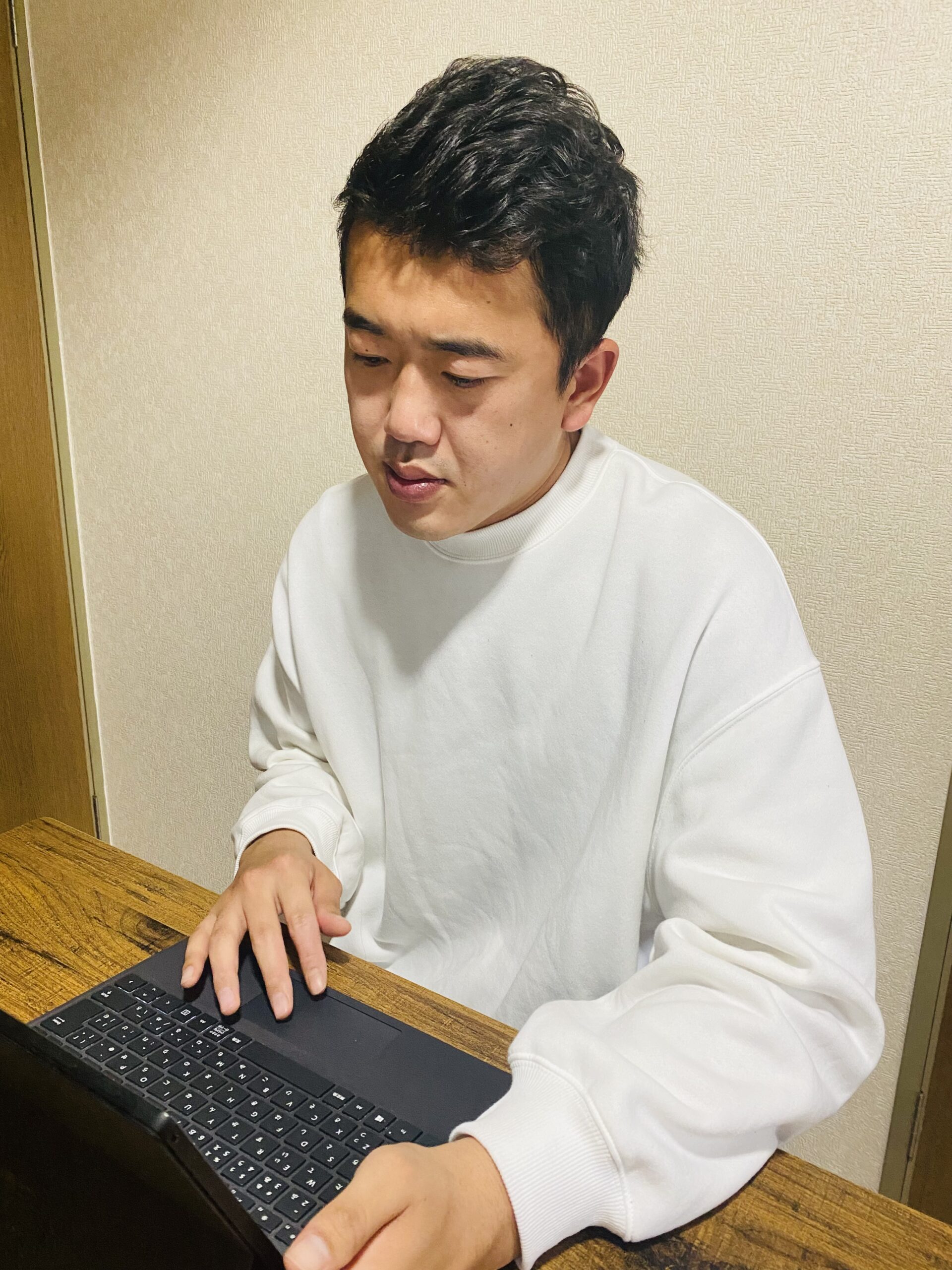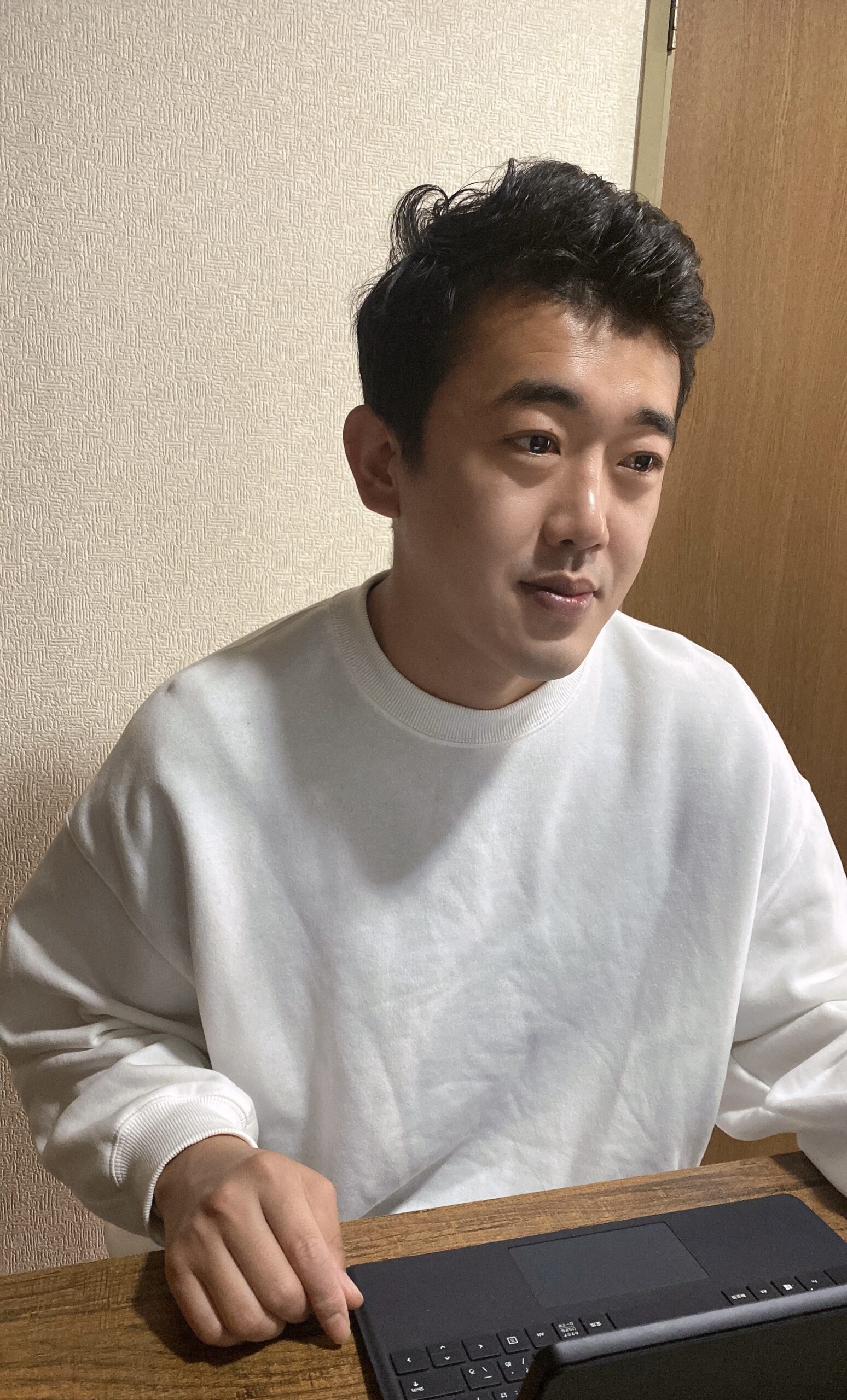In particular, I would like to pursue research on the history of science, technology, and education throughout my life.

How did you know our Graduate School? And what kind of research do you conduct now?
When I was in the master’s program, I belonged to the Graduate School of Education, Okayama University. Since that time, my friends introduced me to this Graduate School.In my doctoral research, I am examining foreign students who studied in Japan from Inner Mongolia in the 1930s and 1940s. At this stage, I am collecting information on Mongolian students and what they brought back to Inner Mongolia after their study in Japan. The problematic perspective of this study is to analyze the significance and limitations of the role foreign students played in the process of modernization of education and science and technology in Inner Mongolia through the event of studying in Japan.
Why did you decide to study at our Graduate School?
My strongest subject is history. History is the study of historical facts and their relationships through the process of evaluating and examining historical documents of the past. In a broad sense, history is related to many academic fields, such as history of science, history of technology, history of medicine, history of education, and history of universities. Everything that exists in the world today has a history of transition. I am very curious about the history of change. This is another reason why I like history.
The field of study I wish to pursue is History of Science and Technology, Division of Human Care Innovation, Graduate School of Interdisciplinary Science and Engineering in Health Systems, Okayama University. In this field, I am studying the state of science and technology in society, especially science and technology related to care, using historical methods. My research theme is “The Development of the History of Inner Mongolian Students under the Manchukuo and Mongolian Regimes”. In particular, I am focusing on how Mongolian students were educated through their study in Japan, and how they were able to contribute to the creation of science and technology in Inner Mongolia after returning to their home countries, from a historical perspective.

What is the appeal of your campus life?
The L-café is a place where students can interact freely with each other and deepen their understanding of multilingualism and multiculturalism. The L-café is a place where students can freely interact with each other and deepen their understanding of multiple languages and cultures. Students who want to learn more foreign languages outside of the classroom, or who want to improve their communication skills through exchange with international students, will be able to do so in a friendly atmosphere. Students who want to learn more foreign languages outside of the classroom and improve their communication skills by interacting with international students can experience the fun and joy of learning in a friendly atmosphere. Students can experience the joy of learning in a friendly atmosphere, interacting with international students through events, eating together with them between classes, and having free talks. We offer free language lessons for different levels and purposes, as well as lessons to prepare for TOEIC and other examinations. The L-café is stocked with language learning materials and pamphlets from overseas universities. The L-café has a wide range of language study materials and pamphlets from overseas universities. In addition, you can listen to news from overseas and get information about the local area from international students and students who have studied abroad.
What was the most memorable, happy, or enjoyable thing that happened to you in Japan (after you came to Okayama, on campus, etc.)? And, please tell us if there are any experiences you would like to try or places you would like to visit in Japan during your stay.
- Blood donation activities
I would like to continue my blood donation activities in Japan. From April 2020 to 2021, I was a Rotary Yoneyama Memorial Scholar at the Rotary Club of Okayama Binan. In the Binan Rotary Club, blood donation is one of the main community service activities. I will continue to actively participate in the blood donation activities of the Binan Rotary Club.
- Support for after-school children’s clubs (for children with developmental disabilities)
After graduating from the Graduate School of Education at Okayama University, I was able to obtain a qualification to support children with developmental disabilities. I am working part-time at the After School Children’s Club of Ryonan Elementary School of Okayama Fureai Corporation. As a certified support worker, I have more responsibility than other part-time workers. One of my responsibilities is to work full-time with children with developmental disabilities. I support the children in their play and homework. In addition, I also support the children by paying attention to their relationships with each other and any problems they may have. I am looking forward to doing community service for the after-school children’s club with the members of the Okayama Binan Rotary Club.

How do you think about your future career path?
As for my future career plan, I would like to return to Inner Mongolia, China to become a university teacher when I finish all my studies (graduate school graduation). I would like to combine both research and teaching, to pass on the knowledge of science and technology that I have learned in Japan to more students, and to make efforts for friendly relations between Japan and China. As for my own research, I would like to become a researcher who can approach historical research from a multifaceted “value perspective” by making the most of my “multilingual” acquisition and “multicultural” experience. In particular, I would like to pursue research on the history of science, technology, and education throughout my life.
Since coming to Japan, I have studied Mongolia again and have come to understand the difference between “Inner Mongolia as seen from Inner Mongolia” and “Inner Mongolia as seen from Japan. Doing research on Inner Mongolia in Japan is not only because of the excellent research environment, but also because there are new things that can be seen by observing from a different perspective and with different values from other cultures. I would like to make an effort to become an internationally active researcher who can discover not only “Inner Mongolia as seen from Japan”, but also “Inner Mongolia as seen from the world” and “Japan as seen from the world”, which are multidimensional issues.
Please give a message to those who are thinking of studying at our Graduate School.
The Graduate School of Interdisciplinary Science and Engineering in Health Systems at Okayama University is a new graduate school that combines an understanding of the people and systems that make up the medical field, research and technology development, and an understanding of the material and inner workings of human beings.They can contribute to solving problems and support the foundation of innovation. If you are thinking of coming to Japan to study, why don’t you come to our graduate school and do research with us?
